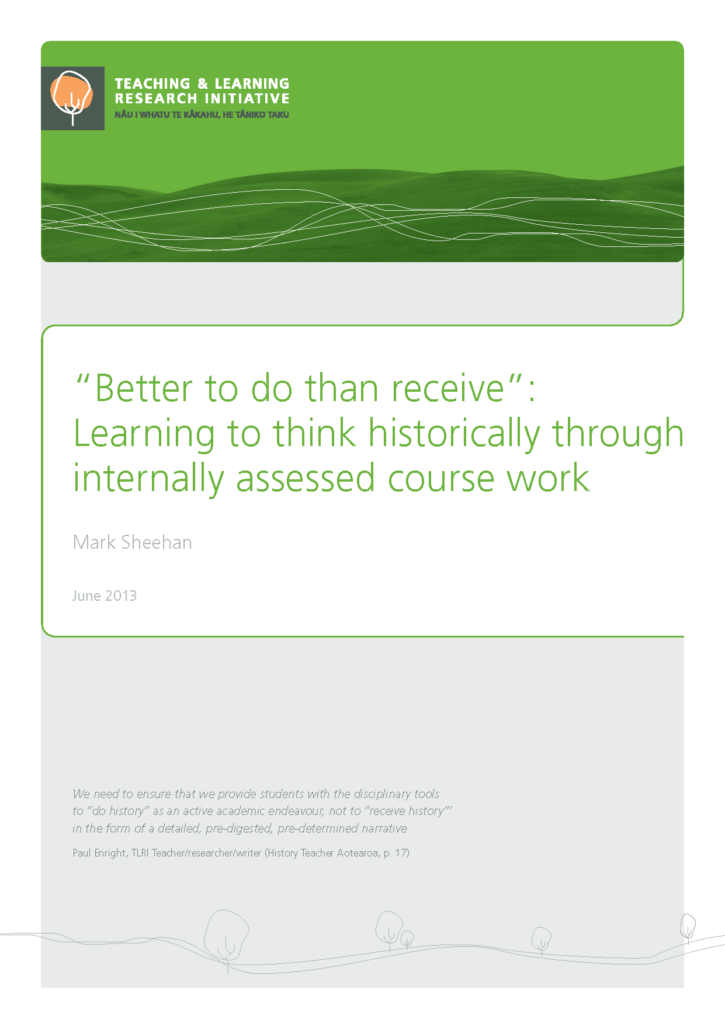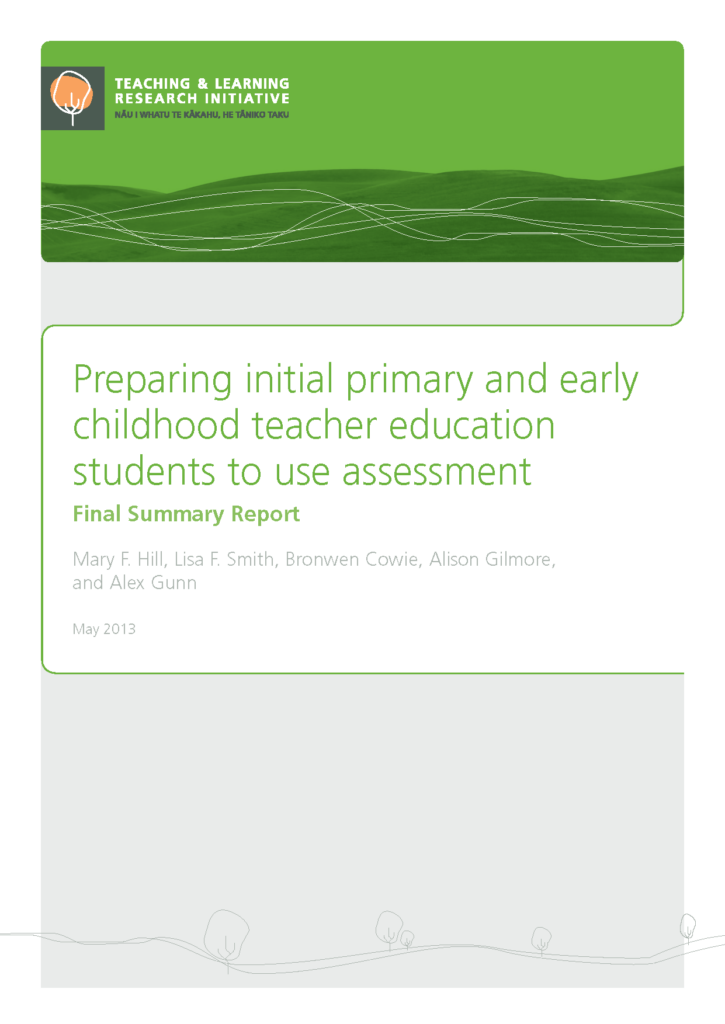“Better to do than receive”: Learning to think historically through internally assessed course work

Introduction This research project examined the contribution internally assessed course work makes to motivating young people to think historically; that is to develop reasoned, evidence-based understandings of the past that equip them to participate in society as critical citizens who can think independently and adjudicate between competing claims of historical authenticity. Our findings indicate that […]
Preparing initial primary and early childhood teacher education students to use assessment

Introduction In our rapidly changing world, in which the future is uncertain, teachers need to prepare children with knowledge, skills, values, and competencies that will support them to become life-long learners and active contributors to New Zealand’s social, cultural, economic, and environmental well-being. Such an aim implies that children should be educated in ways that […]
Using a wellbeing framework to recognise, value and enhance the broad range of outcomes for learners in adult literacy and numeracy programmes
Aotearoa New Zealand’s attention to adult literacy and numeracy (L+N) education arose from the results of the OECD / Statistics Canada International Literacy surveys begun in the mid-1990s, when, as a nation, we achieved unexpectedly low results for L+N proficiency. The Government responded with an adult L+N strategy (Ministry of Education, 2001) that spellt out […]
